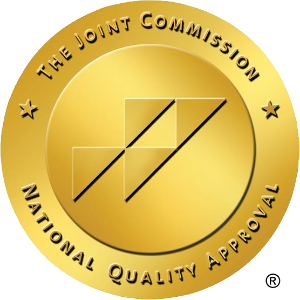Our previous blog entitled, “The Gratitude Mindset,” discussed how gratitude can stimulate positivity in life even when being faced with challenging situations. This time, we aim to point out how being grateful affects our brain and wellbeing, and how Next Level Recovery values and applies the gratitude perspective in what we do.
On multiple occasions, experts have stated through recent studies how our brain and physical health can be positively affected by constantly practicing gratitude no matter what we’re going through in life. However, for the effects of gratitude to manifest within our whole being – physically, mentally and socially, it has to be considered as a way of life. It has to be a persistent emotion that we depend on whether we’re on a happy situation or on our toughest days.
Gratitude and the Brain
‘Train your brain’ is a usual advice we get from people if they want us to learn, be better at something or let go of bad habits. But how does it really occur scientifically?
Cliché it may sound, but the saying that ‘cells that fire together, wire together’ is becoming more and more factual as further studies about the brain are being performed by specialists over the years. This axiom simply means that if a neuron connects with another neuron repeatedly and consistently, a new neural pathway is created in your brain. In other words, the more you ‘fire up’ the same neurons, the more they become ‘wired’ together, creating a new habit or behavior.
Therefore, if you make gratitude a constant practice, you will be able to train your brain and make gratitude a part of your normal thinking – a habit so strong that it becomes an unconscious reaction. And it gets better! As this neural pathway affects your way of thinking, your brain will learn to automatically focus on positive things and will always search for something to be thankful for.
Another neurological basis of the ability of gratitude to shape our perspective in life is the neurotransmitters that get involved whenever we feel thankful. The renowned tandem of dopamine and serotonin is released from our brain whenever we feel grateful or receive the same from others. These neurotransmitters are the ones accountable for the ‘feel good’ emotions.
When we choose gratefulness each day, we gain enduring happiness that is created within ourselves that is not relative to external sources or conditions. But remember, the key for these neural activities to take place is through consistent practice of thankfulness and appreciation.
Gratitude and Wellbeing
In the last few years, there have been abundant evidences of the link between gratitude and wellbeing which were revealed through various studies and researches. The National Center for Biotechnology Information (NCBI) has compiled some noteworthy studies relating to this connection and the most apparent commonality among the findings is gratitude’s ability to affect someone’s wellbeing and increase his level of life satisfaction.
One of the most distinguished experiments was done by Emmons and McCullough wherein a group of participants who were asked to journal about the things that they were grateful for has shown to have increased wellbeing. This was in comparison with a second group who were asked to record negative events and a third group who wrote about neutral life events.
Gratitude and Sleep
Various studies have also linked gratitude as a factor that affects our ability to have a good night sleep. The Journal of Psychosomatic Research by Wood, Joseph, Lloyd and Atkins has proven that gratitude can greatly cause better sleep quality, sleep duration, less sleep latency and daytime dysfunction. Since gratefulness can produce more happy thoughts and feelings, it prevents us from thinking about our problems before we go to sleep, thus avoiding insomnia and other sleep disorders.
Gratitude and Mental Health
Our mental health gains from gratitude may be more than any other aspect of our being. In fact, meditation expert and founder of Ziva Meditation, Emily Fletcher labeled gratitude as a “natural antidepressant”. Expressing gratitude not only improves our mood, it can also change our overall outlook in life. This new perspective can help us overcome the feelings of stress, depression, anxiety, fear, grief and even the effects of trauma. Always reflecting about the good things in life instead of focusing on the adversities can give us more hope and assurance that everything will be okay if we just remain thankful.
Gratitude in Treatment and Recovery
Next Level Recovery is a mental health and drug treatment center in Utah that greatly values the role of gratitude in treatment and recovery from alcoholism, substance abuse, and mental conditions. Mental health and holistic wellness are two components that we truly focus on in our programs. As both aspects are scientifically proven to help with successful recovery and prevention of relapse, we always incorporate them in devising our patient-centered strategies.
We believe that cultivating a grateful mindset and encouraging our clients to practice gratitude in their everyday lives can significantly promote holistic wellness and improve mental health. Since gratitude can affect people’s ability to deal with challenges and take more control of their lives, practicing gratitude can be the best therapy for substance abuse and alcoholism, especially when combined with other treatment modalities.
Allow Next Level Recovery to assist you in achieving mental health wellness and long-lasting addiction recovery through our effective treatment programs. Our approaches commonly involve nurturing a grateful mindset, among other proven methods. Feel free to ask us anything about our programs by dialing (888) 759-5846 or by e-mailing us at info@nextlevelrecovery.com.






